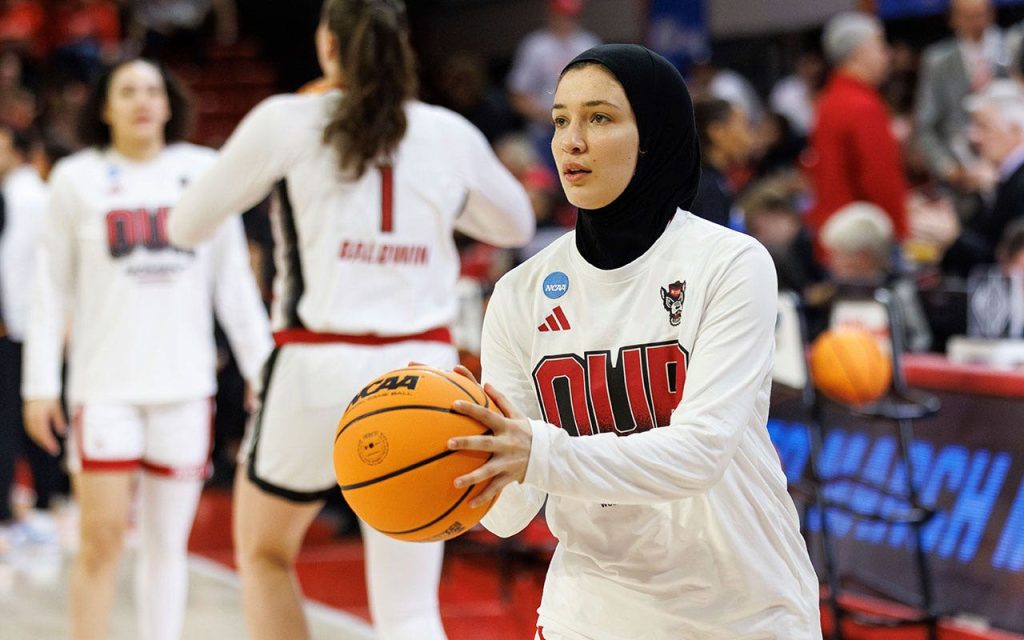N.C. State’s Jannah Eissa and UC Irvine’s Diaba Konate are gaining attention for wearing hijabs while playing basketball during the NCAA Tournament. While they aren’t the first to do so in NCAA Tournament play, their visibility has increased due to record viewership and attendance. Eissa finds motivation in her young fans, aiming to inspire hope and positive representation for women in hijabs through her basketball career. Konate, on the other hand, admires those who have paved the way before her such as Bilqis Abdul-Qaadir, who made NCAA history by wearing a hijab while playing for Memphis a decade ago.
Representation is important to both Eissa and Konate, as they believe it brings visibility and inspiration to Muslim women. Konate, who played 31 of 32 games for UC Irvine, has expressed her desire to one day be allowed to play in a hijab in her home country of France. Currently, the French Federation of Basketball prohibits the wearing of any equipment with a religious or political connotation. Eissa, a walk-on at N.C. State, didn’t play much this season, but she was happy to see young Muslim girls coming to her games to support her.
Former UConn player Batouly Camara, who was one of the first to wear a hijab in Spain’s LF1 league, has expressed her admiration for Eissa and Konate. She believes that their presence in the NCAA Tournament sends a powerful message to girls worldwide, affirming that they belong on the sports field regardless of their background. Eissa and Konate have never met each other, but they are aware of each other’s presence and the impact they are making in representing their religion.
Despite facing challenges such as the French Federation of Basketball’s ban on religious symbols, Konate remains hopeful that the rules will change in the future, allowing her to play in a hijab in her home country. Both Eissa and Konate serve as role models for young girls, inspiring hope and positivity through their representation as women in hijabs in the world of basketball. Eissa, who chose N.C. State because of her family’s ties to the university, sees herself as making a significant impact on young girls who look up to her as a role model.
Eissa and Konate’s presence in the NCAA Tournament highlights the progress that has been made in terms of diversity and representation in sports. Their visibility on such a large platform has the power to inspire young girls around the world, showing them that they too belong on the sports field regardless of their background. Through their representation as Muslim women in basketball, Eissa and Konate send a powerful message of inclusion and empowerment to girls everywhere, proving that anyone can pursue their dreams and excel in sports, regardless of religious or cultural background.















